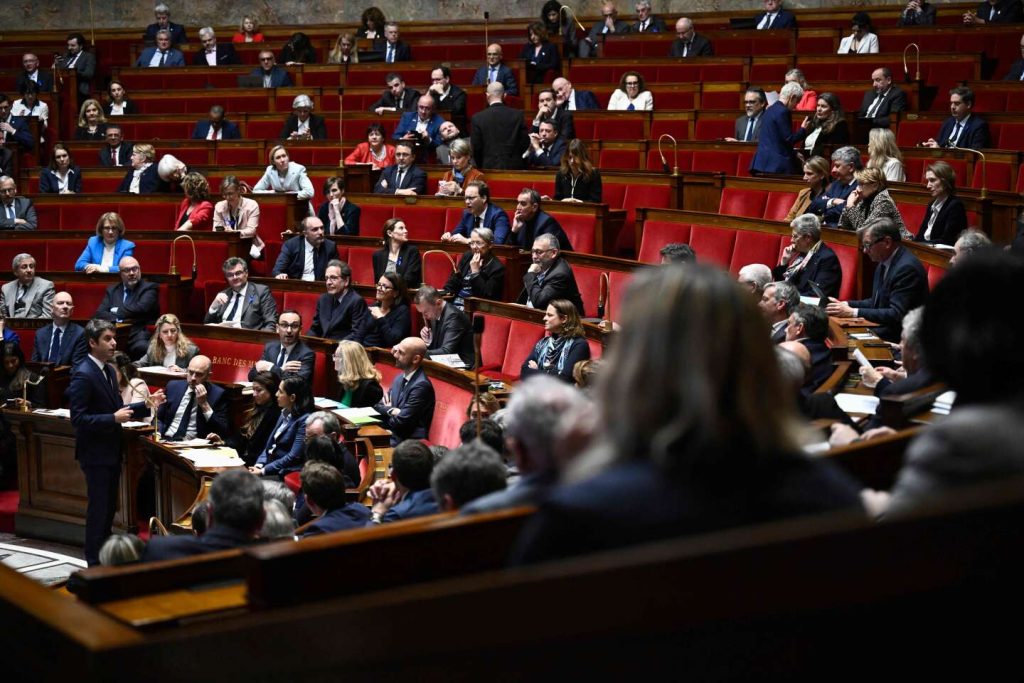The National Assembly adopted a proposal law on March 27 aimed at combating foreign interference. The law includes an experiment allowing intelligence services to use surveillance techniques by algorithms, which are currently only used for counter-terrorism. Despite concerns from the left about the wording of the text and potential impact on individual liberties, the law was widely adopted with 171 votes for and 25 against. The proposal will now go to the Senate for consideration.
The proposal law, led by the chairman of the law commission, Sacha Houlié, includes a four-year experiment period during which intelligence services can use these techniques in the name of national independence, territorial integrity, defense, major foreign policy interests, and the fight against foreign interference. Some on the left are worried about the broad scope of the law. Houlié tried to reassure them by explaining that the wording would act as a filter to restrict its application to combating interference. Despite attempts from socialists and ecologists to add more safeguards, the law was passed, with Anna Pic from the Socialist Party voting for a mid-term evaluation report after two years.
In addition to surveillance techniques, the law also allows for the freezing of financial assets of individuals, companies, or entities engaged in activities of interference. Members of the conservative and nationalist groups generally supported the measures but criticized them for lacking ambition. The text, while aiming to combat foreign interference, raises concerns about potential infringements on fundamental liberties, prompting calls for additional safeguards and oversight to ensure that the measures are not misused.
The adoption of the proposal law by the National Assembly marks a significant step in the fight against foreign interference in France. The experiment period for the use of surveillance techniques by intelligence services will provide valuable insights into their effectiveness and impact on individual freedoms. However, concerns remain about the broad scope of the law and the need for adequate safeguards and oversight to prevent abuse. The law will now move to the Senate for further discussion and potential amendments before becoming fully effective.
The debate surrounding the proposal law reflects tensions between security concerns and individual liberties in the face of foreign interference threats. Supporters argue that enhanced surveillance measures are necessary to protect national interests and ensure the integrity of the state. Critics, however, warn that such measures could infringe on civil liberties and lead to abuses of power if not properly controlled. The passage of the law highlights the ongoing challenge of balancing security imperatives with respect for individual rights and freedoms in a rapidly evolving geopolitical landscape.
Overall, the adoption of the proposal law represents a significant development in France’s efforts to counter foreign interference. The law’s provisions for experimental use of surveillance techniques and freezing of financial assets aim to strengthen national security and protect against external threats. Moving forward, it will be essential to monitor the implementation of these measures and ensure that they are used responsibly and in accordance with the rule of law. The debate surrounding the law underscores the complex nature of addressing foreign interference while upholding democratic values and individual rights.


